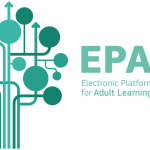HOW TO ASK FOR AN ERASMUS PLUS ACCREDITATION IN ADULT EDUCATION
Having an Erasmus accreditation is of great help for any organization that is planning to present a wide range of projects in the upcoming years, as this guarantees the provision of budget and saves time and effort spent before each deadline. On top of that, it constitutes an award of excellence that recognizes the commitment towards adult education and international cooperation. So, if you are asking yourself how to ask for an Erasmus Plus Accreditation in adult education, this article may be useful for you.
October 19th 2021 is the closest submission deadline that you have to keep in mind. Take into account that you can only apply if your entity has at least 2 years of relevant experience in formal, non-formal or informal education of adults, and the capacity to coordinate and implement the proposed plan. The period covered by the application should be between 2 and 5 years, with the possibility updating it periodically.
SOME USEFUL ADVICE
The evaluation team will consider the following aspects:
Relevance of the application and the Consortium regarding the call and its objectives.
The Erasmus Plus Guide 2021-2027 considers a set of general objectives that all projects should respect. Similarly, each call adds even more points to the list. Before writing the application, try to reflect on how the activities that you have designed respond to these priorities, because these are the topics in which you already know that the European Commission wants to invest in.
Furthermore, Consortium members must have experience in the area they are applying to in order to ensure the put into practice of the plan in the approaching future.
Potential impact and viability of the objectives.
Evaluators want you to be ambitious and prepare activities that have a real positive impact in the community. However, this does not mean being naïve on how much your organization can actually achieve. It is important to keep a balance of both aspects, trying to be enthusiastic, but also realistic.
Division of the plan in defined steps.
Steps need to be defined leading to the achievement of the objectives in a progressive way. Dividing your project in phases can be helpful to identify which are the milestones or main steps that must be reached at some point in order to continue with the plan. Showing the evaluation team a clear strategy will make your proposal stand out.
Measures of management and evaluation that will guarantee quality standards.
Sound management and constant monitoring are the pillars of any successful project. Explain in detail what measures you plan to put into place to organize activities and events. Will you use any online platform? Will you communicate with your partners through email or videocalls? How will you make sure to store all relevant materials until the end of the project? Who will be in charge of these aspects?
When it comes to evaluation, quantitative and qualitative data needs to be collected so that improvements can be applied on the go. Some examples of data-collection instruments are feedback questionnaires for participants and google analytics.
Capacities of the organization to deal with problems in order to ensure the continuity of the activities.
This point is also known as risk-management. This means being aware of unexpected situations that can arise and having solutions planned in advance with the goal of being time efficient. For instance, if someone leaves your team, describe how things will be handled until someone else is found.
Now that you have learned all the secrets to ask for an accreditation, all that is left is starting to write. In our blog and Facebook you can stay tuned to all the news related to the Erasmus Plus Program. Also, if you are interested in starting a mutual partnership with us, click here.


